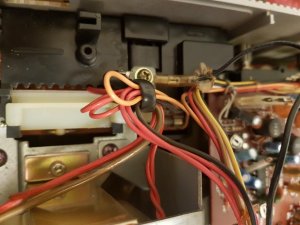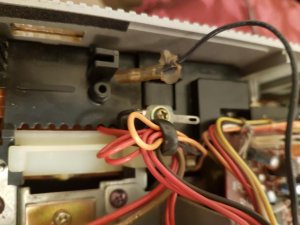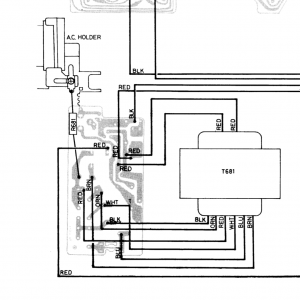Oh yes. That was my Quasar GX-3612. It has a fixed non polarized power cord and a manual AC/DC selector. A while ago I noticed this by pure coincidence on a quiet evening and that box started the polarity awareness war in my home. My C100s seem to hum equally....which actually annoys me because I don't know if I have them connected right without any indications. Might also be the condition of the electrolytic filtering caps in the Quasar. Not sure. Probably not...as my guess is failing electrolytic filtering caps would probably hum badly in either direction.Superduper said:If you remove that resistor, the cord polarity will no longer make any difference to the system. The secondaries will be completely isolated and your tester should no longer detect any AC voltage regardless of how the plug is connected. Now, can you even find that resistor?
As for the C100, for the test that you are performing, a non-contact tester isn't going to be that accurate since there isn't 100% isolation between system circuit and the primary (in this case, the system ground is connected to mains through a 3.3 mΩ resistor, 50% higher resistance than the M70). The higher resistance provides greater isolation and if your cord plug end has some oxidation on the blades (or even in the outlet contacts themselves), very common, it could be enough to trigger your tester. From what I can see from the schematic, the polarity for the C100 DOES make a difference. In fact, wasn't it you that one time, that detected noise or interference on the C100 depending upon which way the cord was plugged in?
Is the resistor in question on the M70 the 2.2M R681?






